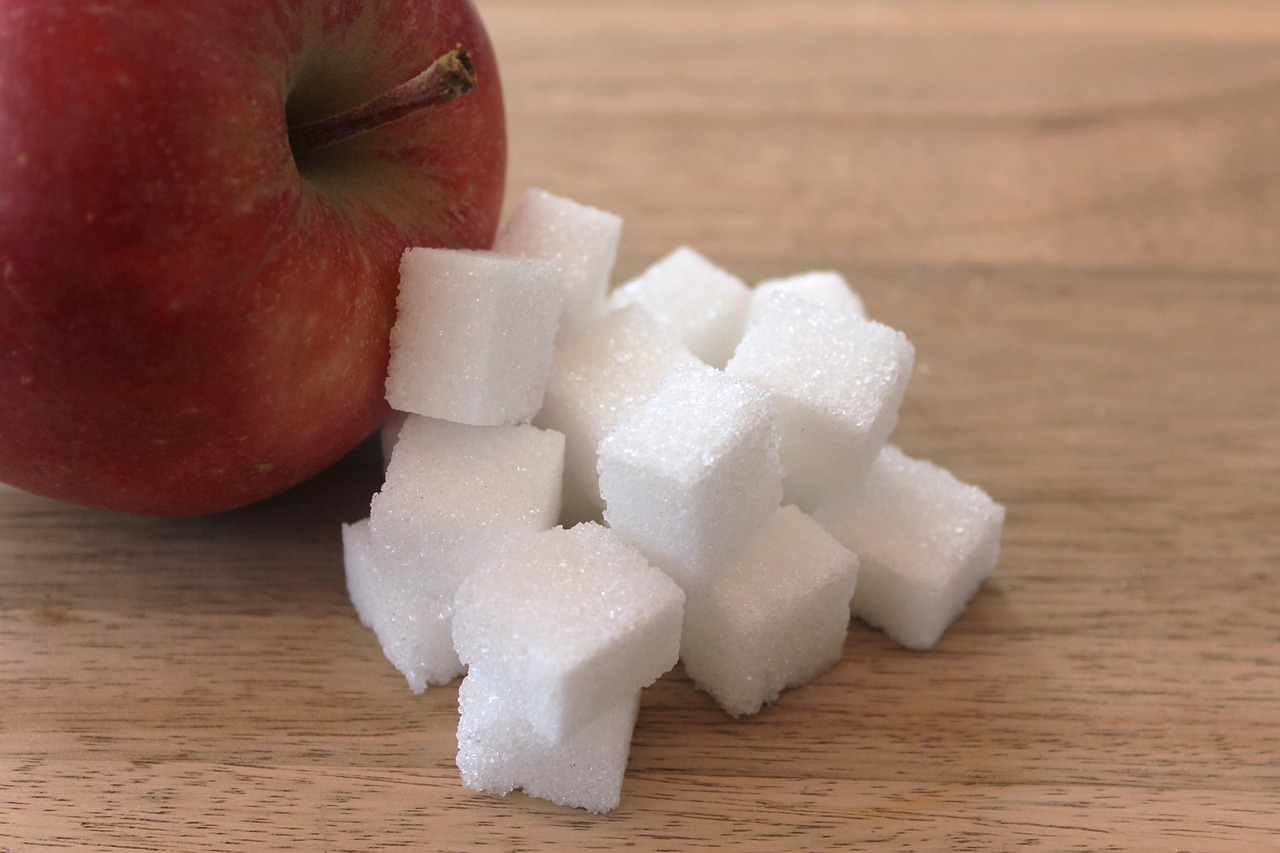Sugar is a pervasive part of modern diets. Whether it’s in the form of sweetened beverages, processed snacks, or even hidden in seemingly healthy foods, sugar is hard to avoid. But what exactly is sugar doing to your body? How does it affect your health in both the short and long term? And most importantly, what can you do to reduce your sugar intake and lead a healthier life?
In this blog post, we will explore the truth about sugar, its impact on the body, and most importantly, effective strategies to cut back on sugar consumption. Whether you’re looking to manage your weight, reduce your risk of chronic disease, or simply feel better, understanding the effects of sugar and knowing how to reduce it is key.
What Is Sugar?
Sugar is a type of carbohydrate that provides energy in the form of calories. While naturally occurring sugars, such as those found in fruits and vegetables, come with beneficial nutrients, added sugars found in processed foods can be harmful when consumed in excess.
There are different types of sugar, including:
-
Glucose: The body’s primary energy source. When you eat food, glucose is released into your bloodstream and is used by your cells for energy.
-
Fructose: A sugar found naturally in fruit, fructose is processed in the liver and can be converted into glucose when needed.
-
Sucrose: A combination of glucose and fructose, often referred to as table sugar. It is commonly used as a sweetener in food and beverages.
-
High-fructose corn syrup (HFCS): A processed sweetener found in many sodas, processed foods, and snacks. It is often a major contributor to excessive sugar intake.
The real issue arises when we consume too much added sugar—typically from highly processed foods and drinks—that offer little to no nutritional value. The body can handle small amounts of sugar, but excess sugar intake can lead to a variety of health problems
How Sugar Affects Your Body
When you consume sugar, your body breaks it down into glucose, which is used as energy by the cells. While glucose is essential for proper body function, excess sugar can have many harmful effects. Let’s take a closer look at how sugar impacts different aspects of your health.
1. Weight Gain and Obesity
One of the most well-known effects of consuming excess sugar is weight gain. Sugary foods and drinks tend to be high in calories but low in nutritional value. Because sugar provides energy without making you feel full, it leads to overeating. This excess calorie consumption, over time, can result in weight gain and, eventually, obesity.
Additionally, sugar, particularly fructose, has been linked to an increase in fat storage, especially around the abdomen. This is due to the fact that fructose is primarily metabolized in the liver, where it can be converted into fat.
2. Increased Risk of Type 2 Diabetes
Excessive sugar consumption can lead to insulin resistance, a condition where the body’s cells no longer respond to insulin as efficiently. Insulin is responsible for helping glucose enter cells for energy. As insulin resistance develops, the body produces more insulin to compensate, which can lead to higher blood sugar levels over time.
This constant overproduction of insulin can eventually result in type 2 diabetes. Studies show that people who consume large amounts of sugar—especially sugary drinks—are at a higher risk of developing this condition.
3. Heart Disease
Sugar doesn’t just affect your weight; it also plays a role in increasing your risk of heart disease. Research shows that a diet high in added sugars is associated with an increased risk of cardiovascular diseases. High sugar intake can lead to obesity, high blood pressure, inflammation, and high triglycerides—all of which are risk factors for heart disease.
Moreover, a high intake of sugar can lead to fat buildup in the liver, which contributes to fatty liver disease. Over time, this can increase the risk of heart disease as well.
4. Tooth Decay
It’s no secret that sugar can lead to tooth decay. Sugar feeds the harmful bacteria in your mouth, which then produce acids that can erode tooth enamel. Over time, this leads to cavities and other dental problems. It’s important to note that even seemingly healthy foods, like fruit juices and smoothies, can contribute to tooth decay if they are high in sugar.
5. Increased Inflammation
Chronic inflammation is linked to many serious health issues, including arthritis, heart disease, and even cancer. When you consume too much sugar, the body responds by releasing pro-inflammatory cytokines (signaling proteins that play a crucial role in the immune system), which increase inflammation in the body. High sugar intake has also been shown to worsen conditions like rheumatoid arthritis, leading to joint pain and stiffness.
6. Skin Problems
Excessive sugar consumption can also contribute to skin issues, including premature aging and acne. When sugar is digested, it undergoes a process known as glycation, where sugar molecules bind to proteins in the body, resulting in the formation of harmful molecules called Advanced Glycation End-products (AGEs). These AGEs can break down collagen and elastin, which are essential for maintaining youthful skin. As a result, wrinkles and sagging skin may appear earlier.
7. Mental Health and Mood Swings
While sugar may give you a quick burst of energy, it can also cause a “sugar crash” that leaves you feeling fatigued, irritable, and moody. Some research suggests that long-term high sugar consumption can also increase the risk of depression and anxiety, as sugar can alter brain function and affect mood-regulating neurotransmitters like serotonin.
The Dangers of Added Sugar vs. Natural Sugar
It’s important to differentiate between natural sugars and added sugars. Natural sugars, like those found in fruits, vegetables, and dairy, come with vitamins, minerals, and fiber that help your body process them efficiently. On the other hand, added sugars—such as those found in sugary drinks, processed snacks, and baked goods—provide little nutritional value and can lead to health problems when consumed in excess.
How Much Sugar Is Too Much?
The American Heart Association recommends limiting added sugar intake to no more than:
-
6 teaspoons (25 grams) per day for women
-
9 teaspoons (38 grams) per day for men
Ways to Reduce Sugar Intake
Reducing your sugar intake doesn’t mean you have to completely deprive yourself of sweet foods. There are simple, sustainable ways to cut back on sugar while still enjoying the flavors you love.
1. Read Nutrition Labels
Many processed foods contain hidden sources of sugar. Always check the nutrition labels for ingredients like high-fructose corn syrup, cane sugar, and agave nectar. By being vigilant about what you’re consuming, you can make healthier choices.
2. Avoid Sugary Beverages
One of the easiest ways to reduce your sugar intake is to cut out sugary drinks like soda, sweetened teas, and energy drinks. Instead, opt for water, unsweetened tea, or sparkling water with a splash of lemon for flavor.
3. Choose Whole Fruits Over Fruit Juices
Although fruit juices may seem healthy, they often contain concentrated amounts of sugar and lack the fiber that whole fruits provide. Choosing whole fruits not only reduces your sugar intake but also provides additional nutrients like fiber, vitamins, and antioxidants.
4. Reduce Sugar in Cooking and Baking
When cooking or baking, try reducing the sugar in recipes by half without compromising taste. You can also experiment with healthier alternatives like stevia, monk fruit, or even mashed bananas to add sweetness to your dishes.
5. Be Mindful of Sauces and Condiments
Many condiments, such as ketchup, salad dressings, and BBQ sauce, contain added sugar. Consider making your own at home or choosing no-sugar-added versions to cut down on hidden sugars.
6. Choose High-Fiber Foods
Fiber helps regulate blood sugar levels and reduces sugar cravings. By incorporating more high-fiber foods such as whole grains, legumes, vegetables, and fruits into your diet, you can help stabilize blood sugar levels and prevent spikes.
7. Gradually Cut Back
It’s important to reduce your sugar intake gradually. If you’ve been used to consuming a lot of sugar, trying to cut it all out at once can lead to cravings and withdrawal symptoms. Start by reducing your intake slowly, and over time, your taste buds will adapt.
Sugar, especially in excess, can have a significant impact on your health, contributing to weight gain, diabetes, heart disease, and other chronic conditions. While it’s okay to indulge occasionally, being mindful of how much sugar you consume and taking steps to reduce it can greatly improve your well-being.
Remember that small changes, such as cutting back on sugary drinks, choosing whole foods, and reading nutrition labels, can make a big difference. With a balanced approach, you can enjoy sweet treats without sacrificing your health.
If you enjoyed reading this blog post or found it helpful, don’t forget to share and please drop us a comment!



